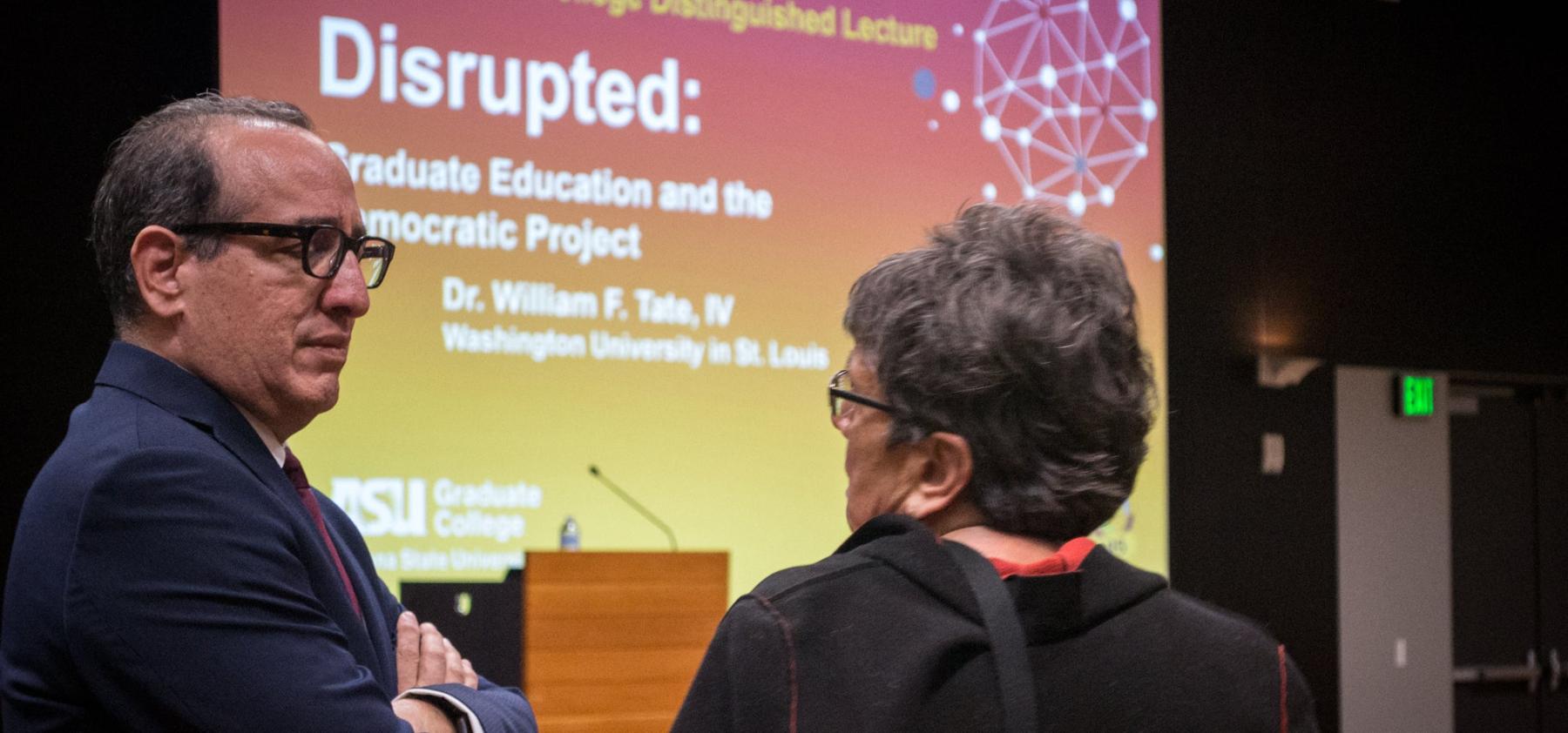
What challenges will we face in the next 80 years of graduate education?
Another academic year comes to a close, and I’d like to start by congratulating all of the graduates who will continue to walk their paths as Sun Devils. This spring, over 4400 graduate students (400+ doctoral and 4000+ masters) will graduate from ASU programs. As graduate students, I am confident that you will use the unique richness of ASU’s interdisciplinary cultures to collaborate on solutions to the world’s most wicked problems and contribute to the economic, social, cultural and overall well-being of your communities.
This year, we celebrated 80 years of graduate education at ASU. Since 1938, ASU has awarded over 150,000 graduate degrees. The impact of these graduates on the social, civic and economic well-being of Arizona, the United States and the world is extraordinary. As we reflected on the success of the past 80 years through a number of events, we also looked to the future. What will the next 80 years mean for graduate education? What challenges will the world face, which education can solve? What challenges will students face, which universities can solve?
A key effort in our program of anniversary events was the launching of the Graduate College Distinguished Lecture, featuring Professor William F. Tate, IV, Dean of the Graduate School and Vice Provost for Graduate Education for Washington University in St Louis. Dr. Tate discussed the state of graduate education in the context of the modern university, and how institutions act as a community partner in the pursuit of fostering opportunity, health and well-being, and civic problem solving. Watch the video of Tate’s lecture.
As long as we continue to ask these questions and develop solutions to problems we identify, we continue to produce conscientious alumni, transformative leaders, and innovative minds who will change today’s landscape, and that in the future.
Best regards,
Alfredo J. Artiles
Dean
More stories from the Graduate Insider

Graduate education is an adventure
About eighteen months ago, I set out on a journey walking the islands of the Dodecanese during a sailing trip in Türkiye and Greece with several friends. Along the way, I found winding paths, timeless villages and breathtaking views of sea and sky. That experience got me thinking about how adventure shows up in other parts of life, especially in learning.

Finding your flow: Managing the graduate writing process
Graduate writing can feel like a marathon—long, demanding, and full of unexpected detours. But as Tristan Rebe, Program Manager for the Graduate Writing Center, reminded students in the Grad15: Managing the Writing Process webinar, writing is not about perfection—it’s about progress. “The best dissertation is a done dissertation,” Rebe said, quoting Robert Frost: the best way out is through.
